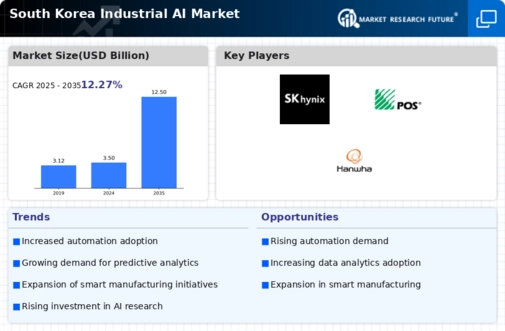The South Korea Industrial AI Market has emerged as a significant sector characterized by rapid advancements in technology and a growing demand for AI-powered solutions across various industries. The competitive landscape is marked by a mix of established players and startups, all vying to innovate and capture a greater market share.
With a strong focus on automation, machine learning, and data analytics, companies are actively seeking to enhance operational efficiencies and improve decision-making processes. The collaboration between technology firms and various sectors such as manufacturing, automotive, and logistics is driving the adoption of industrial AI, fostering a dynamic environment ripe for competition and growth in South Korea.
SK Hynix has established itself as a pivotal player in the South Korea Industrial AI Market, primarily leveraging its robust expertise in semiconductor technology. The company focuses on integrating AI to optimize its production processes, enhance data processing speeds, and minimize operational costs.
The strengths of SK Hynix lie in its commitment to research and development, which positions it to capitalize on emerging trends in the AI sector. Furthermore, a solid network of collaborations with local and international tech firms enables SK Hynix to adapt quickly to the evolving demands of the market, enhancing its competitive edge within the South Korean industrial landscape.
LG Electronics, another powerhouse in the South Korea Industrial AI Market, has made significant strides in the integration of AI solutions across its product offerings. The company focuses on smart manufacturing and intelligent automation systems, aiming to improve efficiency and productivity in industrial operations.
Key products include AI-driven manufacturing equipment and advanced analytics algorithms designed to streamline processes. LG Electronics also stands out for its commitment to sustainability and innovation, frequently investing in research to enhance its capabilities in AI technology.
With a presence that extends across various industrial sectors, the company's strategic partnerships and initiatives have bolstered its position in the market. Recent mergers and acquisitions further enhance its portfolio, positioning LG Electronics as a formidable competitor committed to driving advancements in the South Korean industrial AI landscape.













